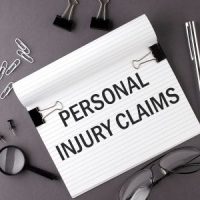Personal Injury Claims Involving Pre-Existing Conditions

If you have a pre-existing condition and were involved in an accident because of another party’s negligence, your case may be more challenging. Usually, insurance companies try to use pre-existing illnesses or injuries against personal injury claimants. However, the truth is that people with pre-existing conditions have the same legal rights as everyone else. The law requires insurance companies to pay personal injury claimants with pre-existing conditions their full and fair share if an accident or incident aggravated a pre-existing condition. Also, if you have a pre-existing condition and suffered a new injury in an accident or incident, the defendant’s insurance company is required to compensate you.
Defining Pre-Existing Condition
This is a health problem or injury you had prior to the accident or occurrence in question. You may have suffered an injury in a previous accident or incident or developed a medical condition. The following are some examples of pre-existing conditions;
- Back or neck injuries
- Muscle issues
- Mental health conditions, such as depression and PTSD
- Arthritis
- Head injuries
- Heart disease
Aggravation of a Pre-Existing Condition
A pre-existing injury or illness does not automatically bar you from recovering compensation in a personal injury claim. If another party’s negligence caused your pre-existing condition to worsen, the negligent party is liable for that worsening. For instance, suppose before the accident or incident, you had a pre-existing arm injury that occasionally caused you pain. Suppose the accident or incident worsened your arm injury to the extent that you needed surgery, the negligent party is liable for your aggravated injury. While you had an existing arm injury, you would not have required surgery if you had not been involved in the accident or incident.
New Injury Due to a Pre-Existing Condition
One of the consequences of people having pre-existing injury or illness is that they are more susceptible to future harm than others. Fortunately, the “eggshell skull law” requires a negligent party to take an injured individual how they are. According to this rule, there is no allowance for an already weakened state of the injured or sick individual. If a negligent party causes harm to someone, they are responsible for the consequences, regardless of whether they were foreseeable or not. So, if you had a pre-existing condition before the accident or incident and suffered a new injury, the negligent party is liable for your new injury.
The Insurance Company Will Exploit Your Pre-Existing Condition
Unfortunately, while you have the right to recover compensation in a personal injury claim, even if you have a pre-existing injury or illness, you can be sure that the defendant’s insurance company will complicate things. The insurance company will try to exploit your pre-existing condition. The insurance company may argue that all the symptoms you are experiencing are due to your pre-existing illness or injury. An experienced attorney can help you fight the insurance company. They can help you gather evidence showing how the accident worsened your condition or how you suffered a new injury. Such evidence may include medical documentation, witness testimonies, and expert witness statements.
Contact a Charleston Personal Injury Lawyer
If you have a personal injury case involving a pre-existing condition, contact our qualified Charleston personal injury lawyer at Gus Anastopoulo Law Firm for legal help. We can help you fight the at-fault party’s insurance company and recover the compensation you deserve.
